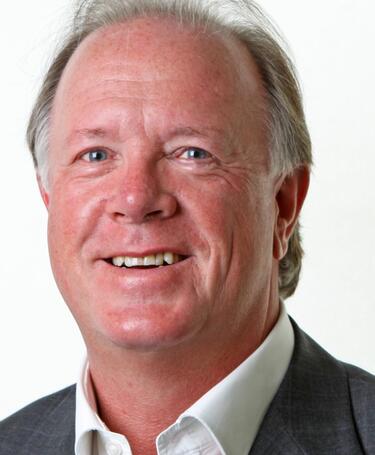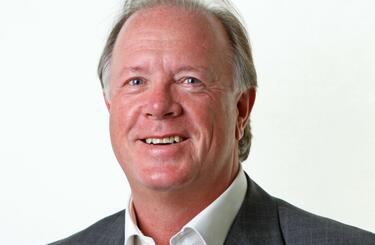
Benefits and challenges of remote conformity assessment
Progress indicator

Dr Nigel H Croft CQP FCQI, examines the benefits and challenges of the digitalisation of conformity assessment and quality infrastructure systems.
Twenty years ago, remote audits and other remote conformity assessment techniques were often viewed with suspicion. Measures were even in place – for example by the first edition of IAF Mandatory Document MD4 for management system audits – aimed at limiting the extent of their use and avoiding potential abuses.
With the dramatic evolution of information and communication technology (ICT) in recent years, however, remote accreditation assessments and management system audits had already gained traction and earned respect as a means of complementing traditional methodologies, before their utilisation became a strategic imperative during the Covid-19 pandemic.
“Remote assessments/audits will play a significant role in the years to come, as part of a hybrid, or ‘blended’ approach to conformity assessment within the wider digitalisation of the global economy.”
In other contexts, remote conformity assessment techniques have been in use for many years. Examples include the use of remotely operated vehicles for inspections in the subsea oil and gas sector, for sampling and testing geological samples on distant planets, and remote assessments of personnel competence. Indeed, many will be familiar with a more recent example with the use of remotely video-monitored self-testing for Covid-19 prior to international travel.
The same trends have also been observed regarding the digitalisation of global quality infrastructure systems, including standards, metrology, accreditation, conformity assessment and market surveillance. Examples of this include the introduction of machine-readable standards, remote assessments, big data analytics and distributed ledger technologies (DLT; “blockchain”), to name but four.
Remote conformity assessment
The United Nations Industrial Development Organization (UNIDO) recently released two publications on these topics that should be of interest to all quality professionals.
The first, Remote Conformity Assessment in a Digital World, focuses on the opportunities, challenges and implications of remote conformity assessment for developing countries, many of which are equally applicable in more developed economies. It considers a range of different conformity assessment scenarios, including management system, product and personnel certification, certification to voluntary sustainability standards, organic certification, inspection, testing, accreditation and peer assessments.
The use of remote assessment methodologies requires careful consideration of multiple factors. Some can be controlled between those organisations that are directly involved in the assessment, while others result from the external context in which the assessment is being conducted.
Although the benefits associated with remote assessment methodologies may easily convince potential users of their worth, the road to their effective implementation can be difficult if certain key factors are not in place.
Some of the challenges mentioned in the UNIDO publication that need to be overcome include:
-
access to the appropriate technology, particularly in some sectors and economies;
-
lack of infrastructure and bandwidth in some regions and/or parts of the organisation being assessed;
-
concerns about data security;
-
dealing with situations that depend on tactile or sensory interaction;
-
ensuring appropriate sampling – not dictated by the client;
-
time zone differences; and
-
recruitment and retention of tech-savvy assessors.
It is, however, clear that the entire global approach to conformity assessment has now changed. Remote assessments/audits will play a significant role in the years to come, as part of a hybrid, or ‘blended’ approach to conformity assessment within the wider digitalisation of the global economy.
Shaping a sustainable future
The second UNIDO publication, Smart Quality Infrastructure – Shaping a Sustainable Future, covers these wider issues. It highlights the intimate relationship between industry, quality and quality infrastructure (QI) initiatives and how this has evolved over time. It presents current trends and challenges related to digitalisation and also provides indications for future development.
One specific chapter emphasises the symbiotic relationship between ‘smart quality’ and Industry 4.0, and elaborates on the concepts developed as part of the CQI’s Quality 4.0 research project. Every process, from strategic to the more mundane, day-to-day operational processes, can be managed using the Plan, Do, Check, Act (PDCA) cycle to drive continual improvement. Digital technologies can revolutionise all these processes. For example:
-
‘Plan 4.0’ can make use of social media, big data and predictive analytics to look at global trends, including the identification and prioritisation of risks and opportunities for the organisation.
-
‘Do 4.0’ can take advantage of robotics, including chatbots, for product and service delivery, as well as artificial intelligence (AI) and machine learning (ML) to make real-time decisions with DLT providing unprecedented levels of traceability.
-
‘Check 4.0’ includes real-time process control, the use of remote inspection technologies (drones and remotely operated sensors, cameras, or vehicles) to provide data from hard-to-access sites, video streaming, VR and AR to facilitate remote audits, as well as social media and big data to analyse trends in customer satisfaction.
-
‘Act 4.0’ is greatly facilitated by the velocity of data-driven, decision-making processes, based on the provision and analysis of accurate and timely data, and the often-instantaneous feedback loops achieved via interconnected equipment (via the Internet of Things, for example) together with AI and ML.
Quality professional Sarah-Jayne Henderson CQP MCQI outlines how to host a remote audit effectively for a paper-based system.
Find an auditing course
Search our database of global training partners for a certified auditing training course in a location near you.
Become a member
Take your quality career to the next level by becoming a member of the CQI or an IRCA Certificated Auditor.